After years of testing fuel products and systems, PS began to suspect that mixed metals in the system could be causing harm.
- Industry standards and PS testing suggest that brass and copper in fuel lines can hurt fuel quality.
- Pitting in an aluminum water tank (see PS December 2014) illustrate what separated water or corrosive chemicals can do inside a fuel tank.
- Sun exposure has clearly taken a toll on the lower half of this portable fuel tank.
- The rugged and spill-proof SureCan is an example of what roto-molding can achieve. Weve used it for six months now without a single spill.







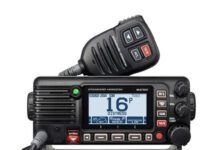

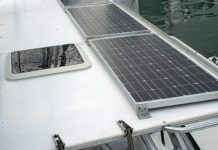




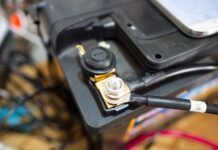


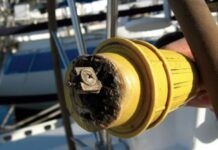

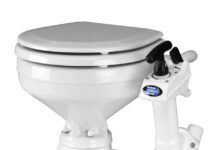
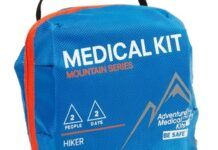
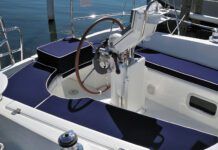


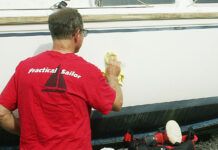
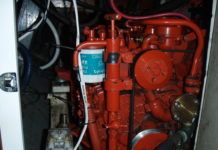
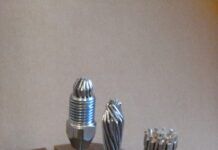
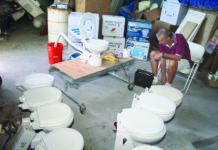
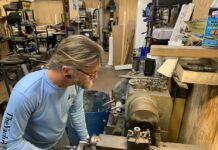
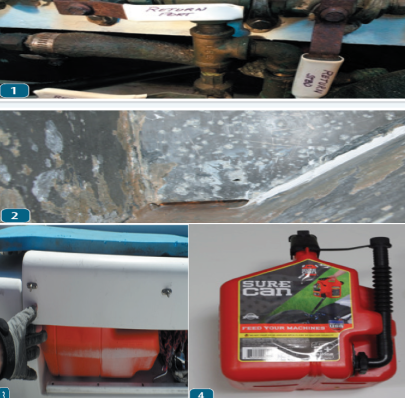




Hi Darrell, A question regarding copper metals in a diesel tank. December 2019, page 14:
In “Conclusion”…… “PS recommended additives contain metal deactivators that sequester the offending ions, rendering them harmless.”
I can’t find any information on your site of recommended diesel additives, e.g. BioBor, that specifically state they contain metal deactivators. Any help would be most appreciated. Thanks.
Eric Stephan
S/V Indara
Gig Harbor, WA. 98335
“Metal deactivator” is an industry chemist’s term for anti-corrosion additives that control copper corrosion and prevent the copper ions from becoming agresive catalysts in solution. Metal deactivators are also used in lubricating oils and engine coolants (antifreeze). It is not a term you will see on labels, nor will you see any other concise description of anti-corrosion additives or their effectiveness on gasoline or diesel additive labels. There are currently no standards regulating the industry.
This is why Practical Sailor does corrosion testing of additives for both gasoline and diesel. In fact, as a result of our test reports, we are aware of several additive makers that reformulated for better performance. Good for them. Even though it will never make the evening news, this is the sort of thing that makes us feel we have accomplished something. We just started another round of tests, this time on engineered ethanol-free gasoline products. The results will be out in the fall, just in time for storage season!
Please review the following articles. For diesel, Startron Diesel and Stabil Diesel have tested well for preventing corrosion of copper and brass, and preventing sludge formation resulting from such corrosion.
“Diesel Additives,” August 2013
“Additives vs. Gum, Sludge,” November 2015
Gasoline Additives in the E15 Era,” December 2019